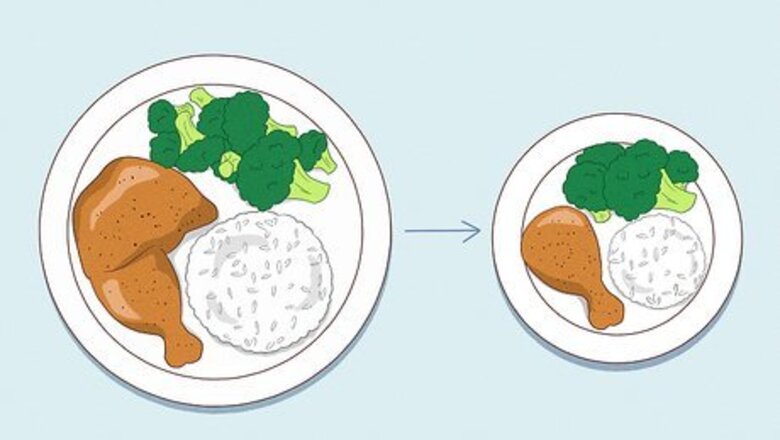
views
X
Trustworthy Source
Cleveland Clinic
Educational website from one of the world's leading hospitals
Go to source
- Incorporate some light exercise before meals to increase your appetite naturally, such as walking around your neighborhood or doing chores around the house.
- Choose bland and low-fiber foods that are gentle on the stomach like yogurt, toast, and white rice.
- Schedule 5-6 smaller meals throughout the day to make eating feel more manageable.
Eating Without an Appetite
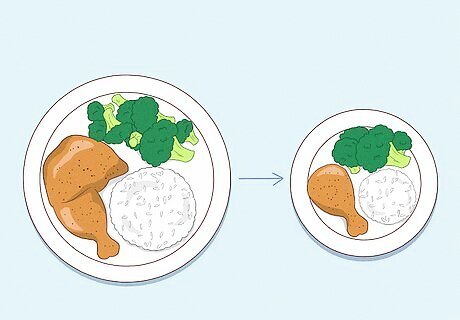
Eat smaller meals more frequently. To make eating feel more manageable, space 5-6 small meals throughout the day, and set a notification to remind you when to eat. Sticking to a regular eating schedule can train your brain to expect food at certain times, which may increase your appetite. Try to stay as relaxed as possible when eating. Feeling tense may activate your gag reflex and make you feel sick or nauseous.
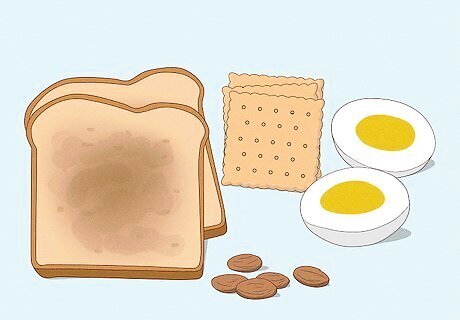
Choose bland or easy-to-digest foods. When you don’t have an appetite, mild foods can be more appealing and easier to eat. Pick soft, low-fiber foods to help aid in digestion, and try to include foods that are high in protein, vitamins, and minerals. If you don’t know what to eat, here are some simple snacks and meals that are gentle on the stomach: Toast Crackers Eggs Nuts Cooked vegetables White rice Tofu Unseasoned meat
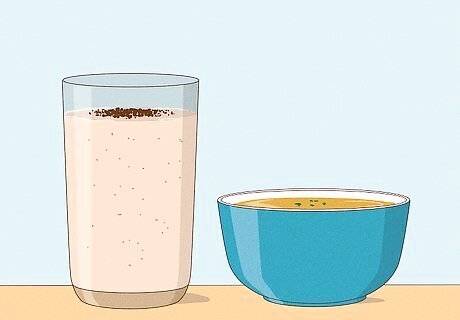
Consume liquid sources of nutrition. If you can’t stomach solid foods, nutritional drinks like protein shakes and smoothies can be easier to keep down. Add ingredients like protein powder, peanut butter, greek yogurt, or milk to squeeze in extra protein and calories. Or, eat other liquid foods like soups, broths, yogurt, or pureed fruits and vegetables. To add extra calories at mealtimes, you can substitute water for fruit juices or sports drinks with electrolytes.
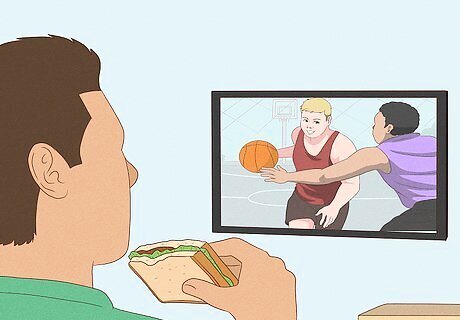
Enjoy your meal in front of the TV. Watching TV at mealtimes is often viewed as bad behavior because it causes people to overeat. However, it may increase your food intake if you have no appetite. When it’s time to eat, turn on your favorite show to distract your mind, and try to take small bites until the end of the episode.

Savor every morsel of food you taste. If you’re struggling to eat a lot, start small and eat slowly—even just a fraction of your normal meal can help you rebuild healthy eating habits. Find foods that you genuinely enjoy eating, and try to appreciate the taste and sensation of every bite. Instead of viewing eating as a chore, think of it as a sensory experience! Make meals more appealing by choosing foods with a variety of colors and textures and adding garnishes like fresh herbs or citrus.
Managing Your Appetite

Wait a few hours to see if your appetite returns. A loss of appetite is usually a temporary feeling, and your desire to eat may return the longer you go without food. Instead of forcing yourself to eat at regular mealtimes, hold off for a few hours until food seems more appealing to you. If your loss of appetite lasts longer than a day, slowly eat small bites of food to help rebalance your hunger-related hormones. If you tend to skip meals, you might have trained your body not to send hunger signals at certain times, and this can alter your normal eating patterns and lead to a loss of appetite.
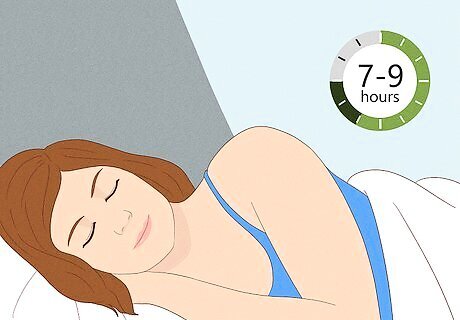
Get at least 7 hours of sleep. When you’re tired, your body isn’t able to send proper signals of hunger to your brain, which can disrupt your appetite and metabolism. Sleep helps regulate your metabolism by allowing your body to restore itself each night, so aim for 7-9 hours of sleep to maintain healthy eating patterns and improve your interest in eating. If you’re feeling drowsy in the middle of the day, take a 30-minute power nap to replenish your energy and help stimulate your appetite.
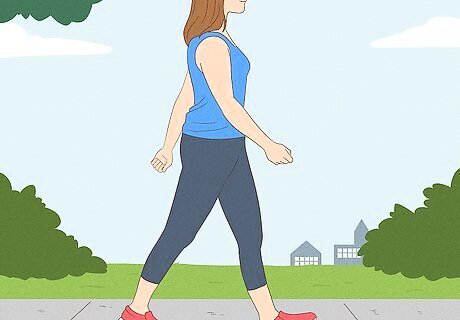
Do some light exercise before meals. To increase your appetite naturally, incorporate some light physical activity into your daily routine. Go for a walk in the park, do some chores around the house, or practice yoga at home. Adding some exercise can boost your metabolism and remind your body that it needs to refuel. Getting some fresh air may also lower your stress levels and stimulate your appetite. Bike around the neighborhood, garden in the backyard, or move your yoga session outside. If you feel sick or your loss of appetite lasts for over a week, avoid exercising and visit your primary care doctor instead.
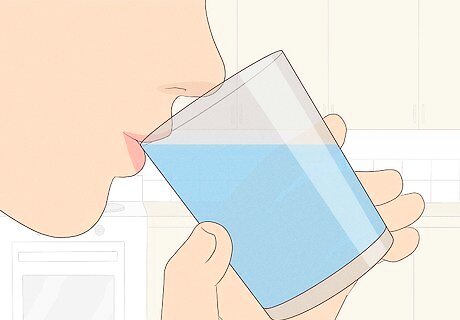
Drink 6 cups (1.4 L) to 12 cups (2.8 L) of water a day. Dehydration can make you feel tired, nauseous, and without an appetite, so make sure you stay hydrated throughout the day. Drink water 30 minutes before meals to avoid feeling full, and take small sips throughout the day, instead of chugging a bunch of liquid all at once. Avoid carbonated drinks, like sparkling water or teas, which can make you feel gassy or bloated.
Treating Your Loss of Appetite
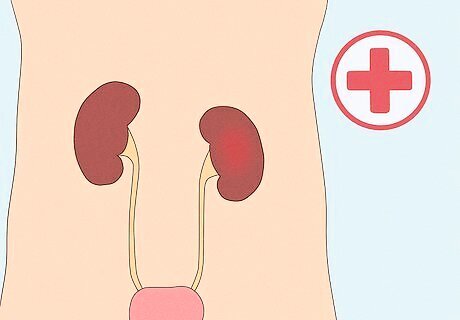
Talk to your healthcare provider to see why you have no appetite. Visit your primary care doctor if your loss of appetite lasts longer than a week or if you experience the following symptoms: sudden weight loss, fatigue, weakness, nausea, irritability, and rapid heart rate. A professional diagnosis can help you find the right solution, especially since poor appetite can be caused by external or psychological conditions such as: Temporary illnesses like a cold or headache Chronic illnesses like cancer, diabetes, kidney disease, hypothyroidism, and irritable bowel syndrome Certain medications like ibuprofen, fluoxetine, and spironolactone Dehydration Stress and anxiety Depression Anorexia nervosa or bulimia Aging Early pregnancy

Seek therapy if the reason behind your loss of appetite is psychological. If the underlying cause behind your lack of appetite is due to anxiety, depression, or anorexia nervosa, reach out to a professional to help you manage your condition. A therapist can help you work around any barriers when it comes to eating and help you develop a better relationship with food.

Meet with a dietician to develop an eating plan. Whether the reason behind your poor appetite is psychological or external, consulting with a dietician can help you navigate any changes in hunger. A dietician can work with you to prepare delicious and nutritious meals, and they can also offer tips on how to manage your appetite and fill in any gaps in nutrition.














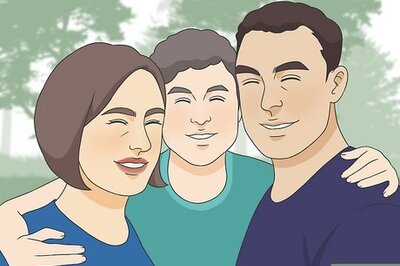
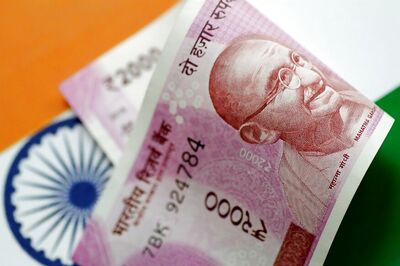
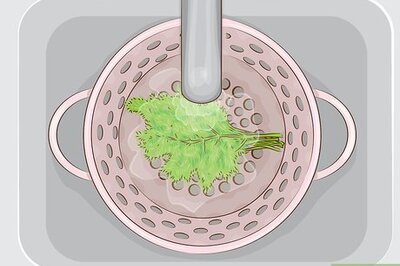


Comments
0 comment